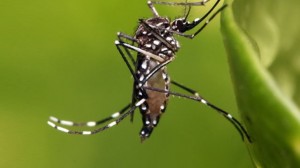 KINGSTON – Blood supplies at the National Blood Transfusion Service (NBTS) have been hit hard by the chikungunya virus (CHIKV) epidemic, with the entity now facing a shortage and asking people who have not been affected by the virus and victims who are not showing any symptoms after a 28-day period to make donations.
KINGSTON – Blood supplies at the National Blood Transfusion Service (NBTS) have been hit hard by the chikungunya virus (CHIKV) epidemic, with the entity now facing a shortage and asking people who have not been affected by the virus and victims who are not showing any symptoms after a 28-day period to make donations.
In a release yesterday, acting director of the NTBS, Dr Veronica Taylor, explained that the CHIKV outbreak had forced the deferral of several blood donors and cancellation of blood drives due to inadequate support.
Just over 41 per cent, or 213, of the 519 deferrals at the NBTS’ Slipe Pen Road, Kingston collection centre in October were as a result of CHIKV. Overall 1 193 people turned up to donate blood.
Yesterday, Dr Taylor explained that the current policy requires that individuals affected by CHIKV wait for at least 28 days before donating blood. She said the policy will remain in place until further information on the impact of the infection is available.
Dr Taylor said that following CHIKV infection, traces of the virus remain in the blood for up to 17 days. In addition, some people experience a relapse which may involve a return of the fever and other symptoms usually within three weeks.
She added that a donor who is well four weeks after onset of initial symptoms is not likely to have this type of relapse and so is considered safe to donate blood.
In the meantime, the NBTS sought to quell concerns about blood donation amidst the outbreak.
“The NBTS understands public concerns about the safety of donating blood at this time and acknowledges that information regarding the impact of the CHIKV infection on blood donors and recipients of blood from a previously infected donor is not well understood,” the NBTS said.
“Under international screening guidelines adhered to by the NBTS, blood is only collected from individuals provided it is considered not to put the donor at risk of ill health and not to put the recipient at health risk,” it added.
